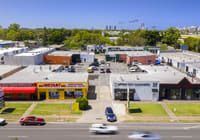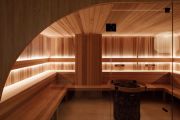
Desire for luxury travel is growing, even if it costs $3000 a night
Luxury accommodation, where a single night can cost upwards of $3000, is the fastest-growing segment in Australia’s hotel industry as the well-off become wealthier and more willing to splash out on lavish experiences.
As of August, the supply of luxury hotel rooms had increased by about 22 per cent in the past five years, showing the strongest growth of all the hotel segments, according to industry data analyst STR. It’s a similar story over the past decade, with luxury hotel room supply growing by about 35 per cent.

It’s part of a global trend where those with the means are increasingly likely to indulge in experiences rather than spend on luxury goods. At the same time, the reasons to travel are multiplying as Australia offers a calendar of high-profile sports and cultural events along with rare opportunities to experience the natural environment.
At the same time, the wealthy are getting wealthier. The Australian Financial Review Rich List for 2025 showed the fortunes of the country’s 200 wealthiest people collectively was $667.8 billion compared to $424 billion in 2020 – up 57.5 per cent in just five years.
Matthew Burke, Asia Pacific regional director at STR, said investors had identified a shortage of top-end accommodation for increasingly wealthier travellers, and took advantage of this in the past decade.
“There is an emerging and growing market for international travellers to want that style of accommodation … most of those rooms opened between 2019 and 2024,” Burke told The Australian Financial Review. “There is a cohort of people who, they’ve never been wealthier in the sense that asset prices are higher, their homes are worth a lot more money … [more] time that they have at their disposal.”
The appetite from Australian domestic travellers for luxury stays had also risen, especially since COVID-19, in line with the nation’s “very healthy” event profile – from the Ashes Test series in Adelaide to the WWE in Perth, he said.
“People are prepared to pay what it takes to get the experience that they want for something that they really want to experience,” Burke said. “Whether that’s the Formula 1 in Melbourne, Taylor Swift concert … all those things attract either locals or international guests that have got a higher propensity to or willingness to pay.”

For example, 27 hotels run by Australia’s largest hotel operator, Accor, experienced occupancy above 98 per cent on both nights of the weekend of the 2025 NRL Grand Final at the end of September.
The greatest proportion of new luxury hotel supply had opened in the second half of the past decade, Burke said.
Marriott opened the country’s first Ritz-Carlton hotel in Melbourne in 2023 where its most premium, top-floor suite costs about $15,000 a night.
At the boutique end of the luxury sector, hotelier David Horbelt and his business partner Malcolm Bean opened Sequoia Lodge in 2021 in South Australia. A suite in the opulent lodge, just above Piccadilly Valley in the Adelaide Hills area, will set visitors back between $2000 and $3000 a night.
There is more in the pipeline as well, including the flagship Waldorf Astoria in Sydney. The structure of the 26-storey building in One Circular Quay was completed in February and is due to open its doors next year. It was bought by billionaires Andrew and Nicole Forrest – who have subsequently separated – for $520 million about two years ago.
More immersive offering
British hotelier IHG Hotels & Resorts is also opening InterContinental properties in Melbourne, Canberra and Sydney, as well as reintroducing its Regent brand as part of a deal with fund manager Salter Brothers.
Its Crowne Plaza in the eastern Sydney suburb Coogee is being transformed into its luxury brand InterContinental – it is taking bookings from December – while its Crowne Plaza Melbourne will be upscaled into an Intercontinental-branded hotel by 2030. The current Intercontinental in Melbourne will become a Regent Hotel – a brand even more luxurious, under the IHG banner.
Paul Salter, managing director at Salter Brothers, said that globally there is a growing demand for luxury and lifestyle experiences.
“Guests are looking for more than just somewhere to sleep, but rather a more immersive offering that encompasses global culinary quality, local experiences and wellness opportunities,” Salter told the Financial Review.
“We believe that affluent travellers are prioritising properties that can provide these offerings, and these luxury properties have the potential to deliver long-term growth, delivering value to guests and investors alike.”
Dransfield Hotels and Resorts managing director Dean Dransfield said luxury accommodation dominating the supply pipeline was driven by customers and developers.
“[For developers,] the highest that people can pay for any bit of real estate puts the highest amount of land value and profit into any transaction, so you’re always trying to find the highest-paying customer,” he told the Financial Review. “What’s happened over the last decade is there’s more higher-paying customers, so very expensive hotels stack up.
“That’s why we’ve seen such an explosion of luxury hotels around the country.”











